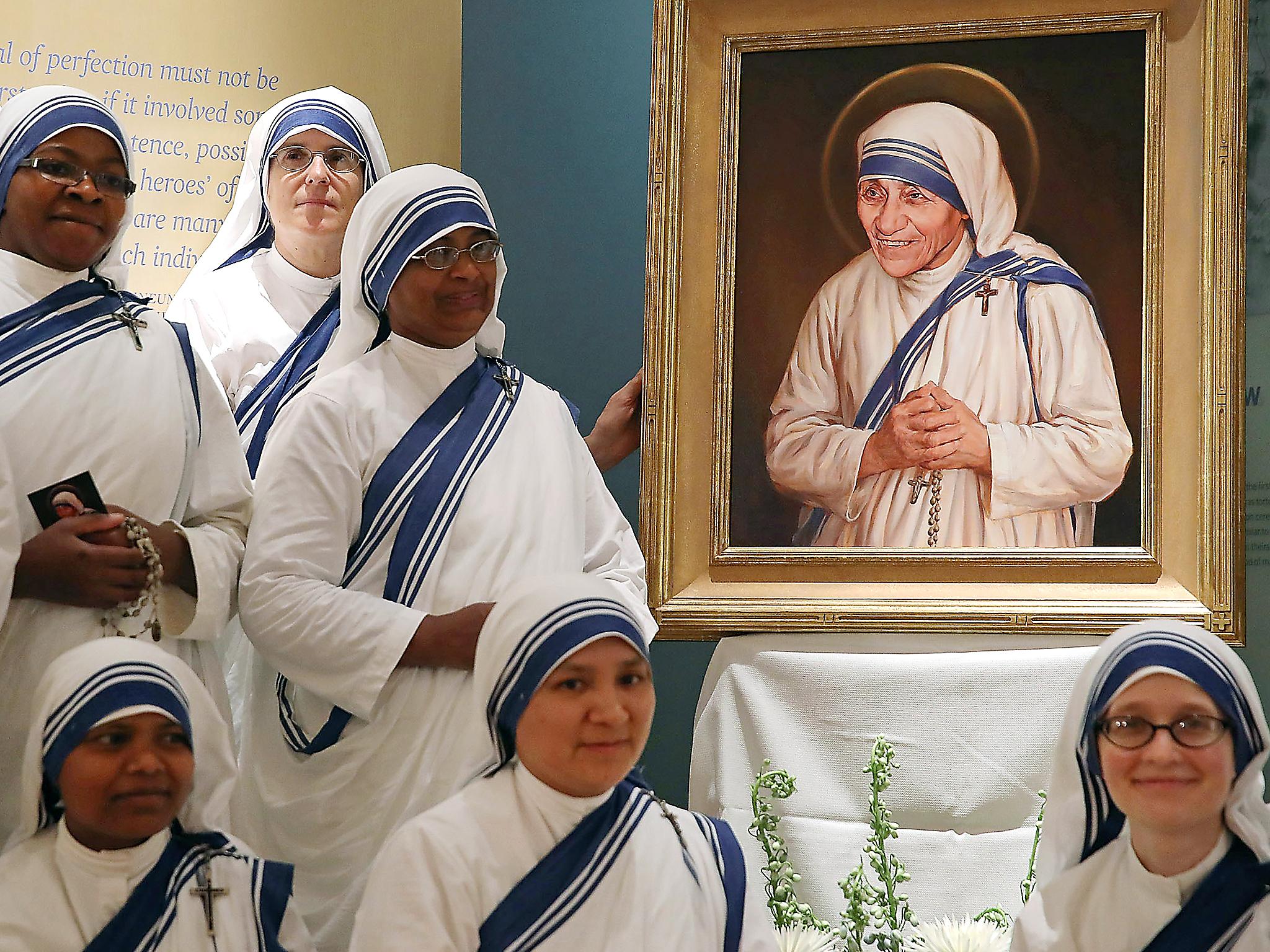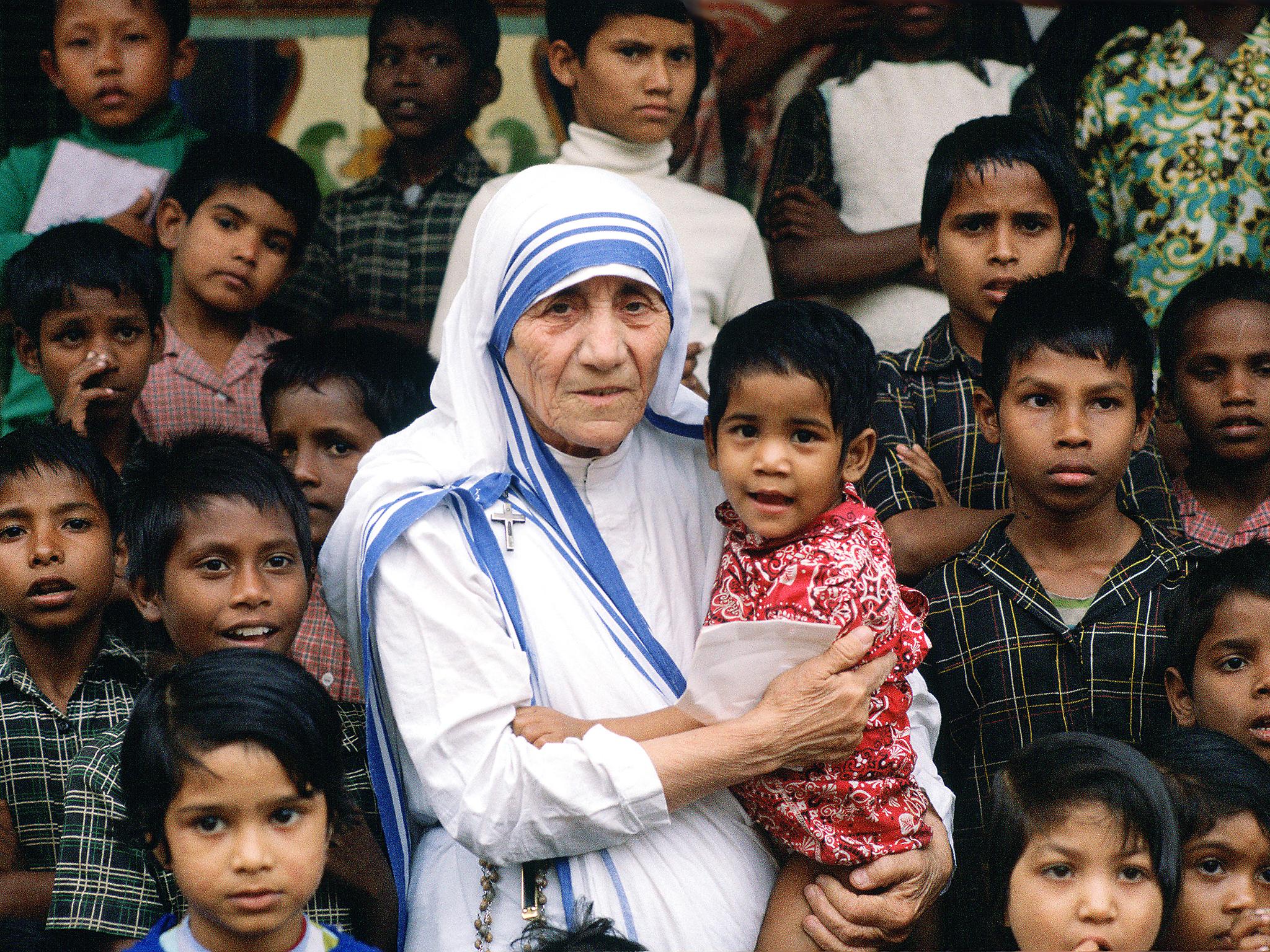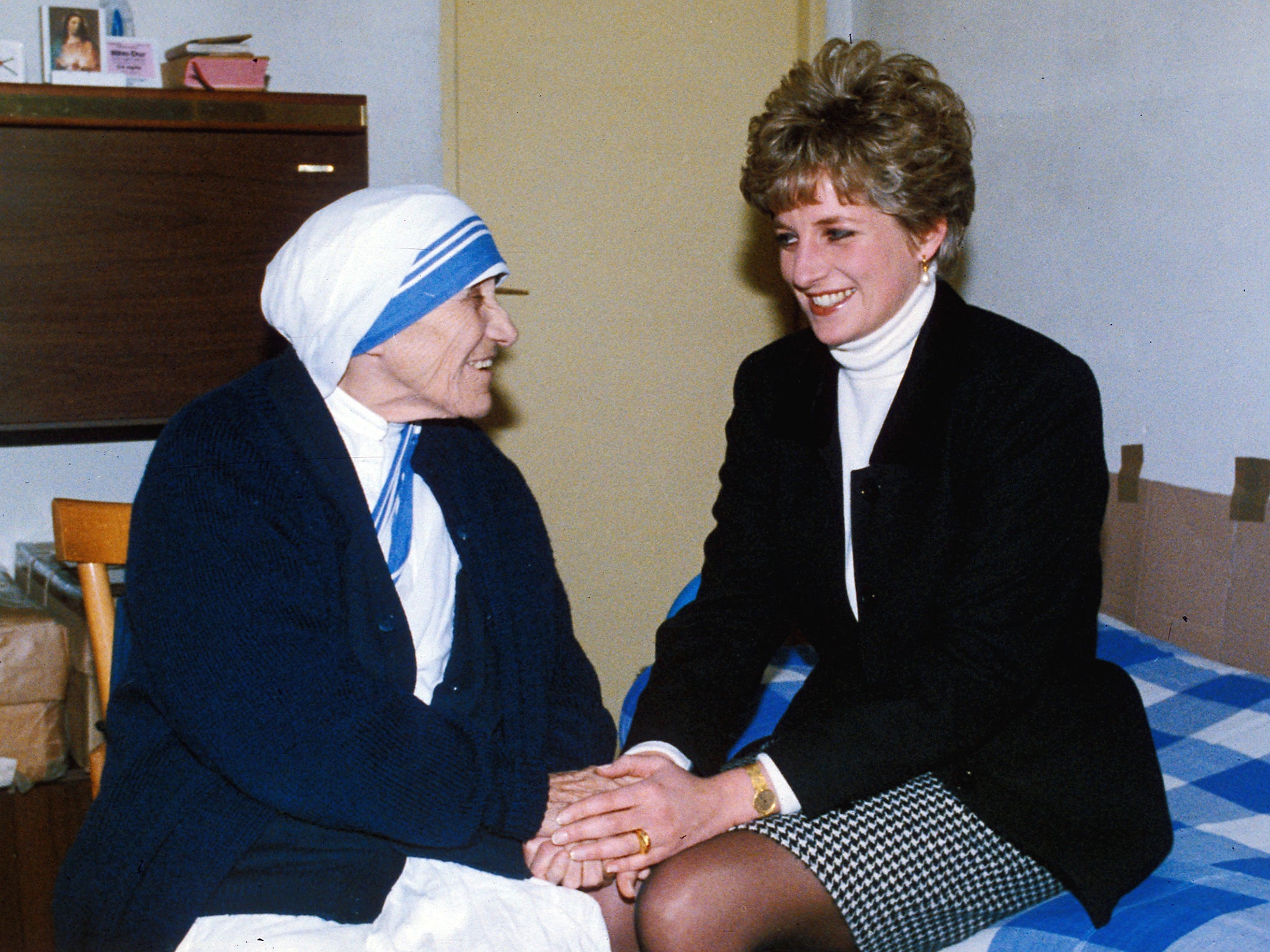Mother Teresa becomes saint after Pope Francis declaration at Vatican
Despite being widely revered as one of the holiest people of the 20th century, her legacy has been called into question by several critics
Pope Francis has declared Mother Teresa a saint as part of his Holy Year of Mercy.
Applause erupted in St. Peter's Square even before he finished pronouncing the rite of canonisation at the start of the Mass.
Hundreds of Missionaries of Charity sisters in their trademark blue-trimmed saris had front-row seats at the Mass, alongside 1,500 homeless people and 13 heads of state, including Queen Sofia of Spain.
Pope Francis' predecessor Pope John Paul II bent Vatican rules to fast-track Mother Teresa to sainthood – a process which usually does not start until five years after the candidate's death –two years after she died in 1997.

Since her death, two alleged miracles have been attributed to Mother Teresa, paving the way for her classification as a saint.
In 2002, the Vatican ruled that an Indian woman’s stomach tumour had been miraculously cured after she prayed to Mother Teresa, leading to her beatification – the first stage towards sainthood – in 2003.
Pope Francis attributed a second miracle to her after a man with a bacterial infection in his brain purportedly recovered after praying to Mother Teresa.

Despite being widely revered as one of the holiest women of the 20th century, Mother Teresa's legacy has been called into question by several critics.
In a 2003 essay for Slate, the late journalist Christopher Hitchens wrote: "MT was not a friend of the poor. She was a friend of poverty. She said that suffering was a gift from God.
"She spent her life opposing the only known cure for poverty, which is the empowerment of women and the emancipation of them from a livestock version of compulsory reproduction."

In his pamphlet The Missionary Position, he also criticised her for accepting money from dictators, such as the Duvalier family in Haiti, and running a "cult of suffering".
In 1994, Mr Hitchens and the British Pakistani journalist Tariq Ali produced an extremely critical documentary on Mother Theresa titled "Hell's Angel".
The Indian doctor Aroup Chatterjee said people who worked with her order, the Missionaries of Charity, described the medical care given to the sick and dying as meagre and said treatment conditions were unhygienic.
He also said the order's claims of the assistance it gave to the city's poor were exaggerated.
Mother Theresa’s writings were also problematic for her entry into sainthood, with entries apparently suggesting a wavering faith in God.
Born Agnes Gonxhe Bojaxhiu to Albanian parents, Mother Teresa grew up in the then Macedonian capital Skopje, which used to be part of the Ottoman Empire.
When she was 19, she joined the Irish order of Loreto and later was sent to India, where she first taught and then tended to orphans and the sick.
She founded the Missionaries of Charity religious order in 1950. The mission started with 12 nuns and has expanded across the globe.
Mother Theresa was awarded the Nobel Peace Prize in 1979. She died in 1997.

Pope Francis praised Mother Teresa as the merciful saint who defended the lives of the unborn, sick and abandoned – and who shamed world leaders for the "crimes of poverty they themselves created."
Speaking from the steps of St. Peter's Basilica, Pope Francis said Saint Teresa spent her life "bowing down before those who were spent, left to die on the side of the road, seeing in them their God-given dignity."
He added: "She made her voice heard before the powers of the world, so that they might recognize their guilt for the crimes of poverty they themselves created."
As if to emphasise the point, Pope Francis repeated the line "the crimes of poverty they themselves created."
Join our commenting forum
Join thought-provoking conversations, follow other Independent readers and see their replies
Comments
Bookmark popover
Removed from bookmarks